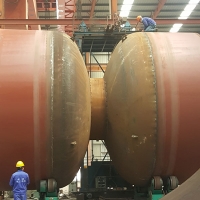In my earlier articles, I’ve discussed some ways to save gas in your car. I have mentioned steps like adopting good driving habits, sustaining your automotive in peak situation, planning your trips, carpooling, avoiding traffic jams, driving smaller autos, selecting more environment friendly automobiles, including vitality saving units and plenty of others.
By following a number of the objects listed above, you need to be able to get an excellent performance from the gas you fill up into your tank and save on your vehicle gas prices.
At present, we’re going to discuss extra methods of saving gas, however this time in our kitchens. Saving cooking gas requires a unique approach from saving automobile gas. This is because the gas stove makes use of exterior burning of gas, in contrast to engines that uses inner combustion of gas.
Gas gas like liquefied petroleum gas (LPG) or natural gas (Methane) is usually used for cooking at house as a result of it is clean and easily accessible. If we’re ready to manage the usage, we may presumably save appreciable amounts of money too.
With the world’s oil and gas prices at such a high degree, many people are arduous-pressed to try to squeeze the utmost work out of the gas we use. Probably the greatest methods to use is to avoid wastage that may lead to loss of energy.
Under are a number of the methods you can save gas within the kitchen:
1. Mild up your stove solely when you’re able to cook and the substances are inside attain. This requires good coordination and planning by the cook. Because of this heat is just not wasted through the ready period. The flame is only used for doing helpful work – heating the food.
2. Use stress cookers because they require much less gas for heating and thus reduce cooking time. There is a scientific clarification for this. Water boils at one hundred diploma Celsius at regular atmospheric pressures. When the cooking pot is pressurized above atmospheric, the water boils at a better temperature. At that higher temperature, no matter meat or different components contained in the pot get cooked quicker.
3. Keep away from using too much water when cooking because it wastes gas and it takes an extended time to evaporate. Water boils at 100 diploma Celsius in a standard pot. It remains at this temperature regardless of how rather more you heat it further. It simply evaporates, and the heat is lost by way of the evaporation of the steam. The temperature is not going to rise additional in the water. The extra water there may be, the more the gas required to deliver it to boil.
Four. Reduce the flame when boiling starts to save gas. This pertains to merchandise 3 above. A small flame is ample to maintain the boiling of the water at one hundred degree Celsius. An enormous flame won’t convey the water to a better temperature.
5. Cowl cooking pots and pans with a lid to stop heat from evaporating. This once more relates to item 3 above. By covering the pot with a lid, the energy supplied to the water is prevented from being lost by means of evaporation of the steam. In actual fact, the helpful energy contained within the steam is utilized and transferred to cook the meals.
6. Use a small burner as it consumes 6% to 10% less gas than an enormous burner. To be efficient, as much of the heat from a flame should be transmitted to the pot. With a giant flame under a relatively small pot, the new gases flowing alongside the sides of the pot has less chance of being extracted. Only sizzling gases involved with the pot have any chance of being extracted. Any hot gases not involved with the pot are lost to the environment.
7. Clear the burner for those who see an orange, yellow or non-uniform flame. This means there is incomplete combustion of the gas. Petroleum Product Normally this is due to some obstruction in the air or gas passages in the gas stove. Incomplete combustion signifies that among the gas is not burnt however is deposited as carbon. That is a waste of the overall heating capability of the gas.
 You should not have to know thermodynamics in order to avoid wasting gas in your cooking stove. Nevertheless, lots of the strategies outlined above is derived from the understanding of the properties of water and steam, ideas of heat switch like conduction, convection, radiation, combustion of gas, venturi and gas burner design.
You should not have to know thermodynamics in order to avoid wasting gas in your cooking stove. Nevertheless, lots of the strategies outlined above is derived from the understanding of the properties of water and steam, ideas of heat switch like conduction, convection, radiation, combustion of gas, venturi and gas burner design.


